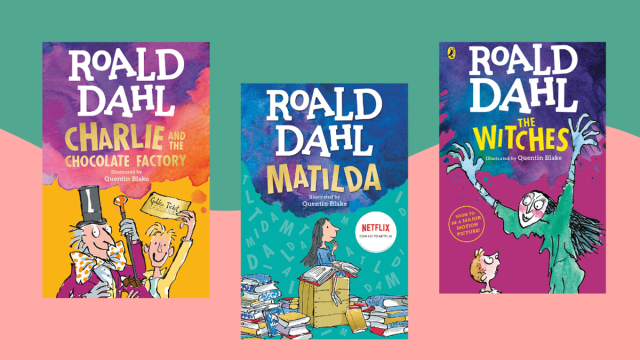Do classic books need “sensitivity edits” to make them more palatable for modern audiences? Roald Dahl is now at the center of this debate—and it’s getting heated
If there’s anything that’s guaranteed in this life, it’s that cultural norms will change over time. That’s apparent any time you read a piece of classic literature—so many wonderful, valuable books are filled with language and references that evoke cringes from today’s readers. But does that mean those books should be edited to remove potentially offensive language? That’s a big, loaded question—and one that now centers around some of Roald Dahl’s classic stories.
According to The Telegraph, new printed editions of Dahl’s books will now include hundreds of small edits meant to make the books more inclusive but critics are saying just make them “woke.”
For example, in Charlie and the Chocolate Factory, Augustus Gloop is no longer described as “fat”; instead, he’s “enormous.” Oompa-Loompas have been made gender-neutral and less problematic, too. In The Witches, new text has been added about the villains’ baldness, reading, “There are plenty of other reasons why women might wear wigs and there is certainly nothing wrong with that.”
The copyright pages in the edited books now include a note from Dahl’s publisher, Puffin Books, that reads, “The wonderful words of Roald Dahl can transport you to different worlds and introduce you to the most marvellous characters. This book was written many years ago, and so we regularly review the language to ensure that it can continue to be enjoyed by all today.”
Puffin says the changes were implemented by sensitivity readers who focused on weight, mental health, gender, and race. The Roald Dahl Story Company, which owns the rights to Dahl’s collective works, defended the changes.
“When publishing new print runs of books written years ago, it’s not unusual to review the language used alongside updating other details, including a book’s cover and page layout,” the Roald Dahl Story Company told the Associated Press. “Our guiding principle throughout has been to maintain the storylines, characters, and the irreverence and sharp-edged spirit of the original text.”
Sensitivity edits are nothing new, but they’ve always been controversial. In particular, some critics on the right are likening the changes to Dahl’s books to “censorship” by “woke bullies” (an interesting opinion coming from some of those who threatened teachers with jail time over not complying with book bans in schools).
Any time edits are made to classic literature, whether they’re cheered or reviled depends on who you ask, said nonprofit PEN America.
“Amidst fierce battles against book bans and strictures on what can be taught and read, selective editing to make works of literature conform to particular sensibilities could represent a dangerous new weapon,” they said in a statement. “Those who might cheer specific edits to Dahl’s work should consider how the power to rewrite books might be used in the hands of those who do not share their values and sensibilities.”











